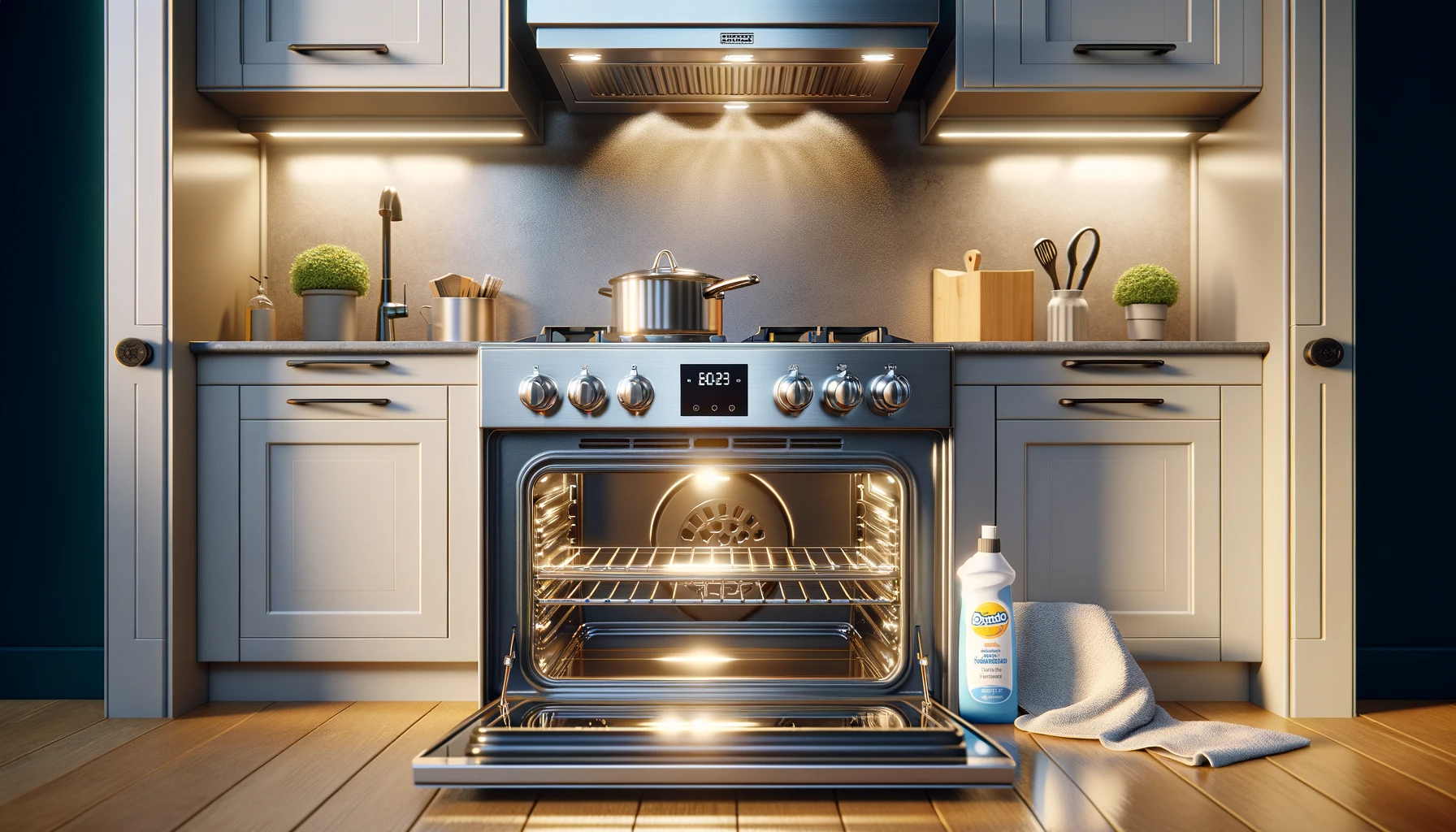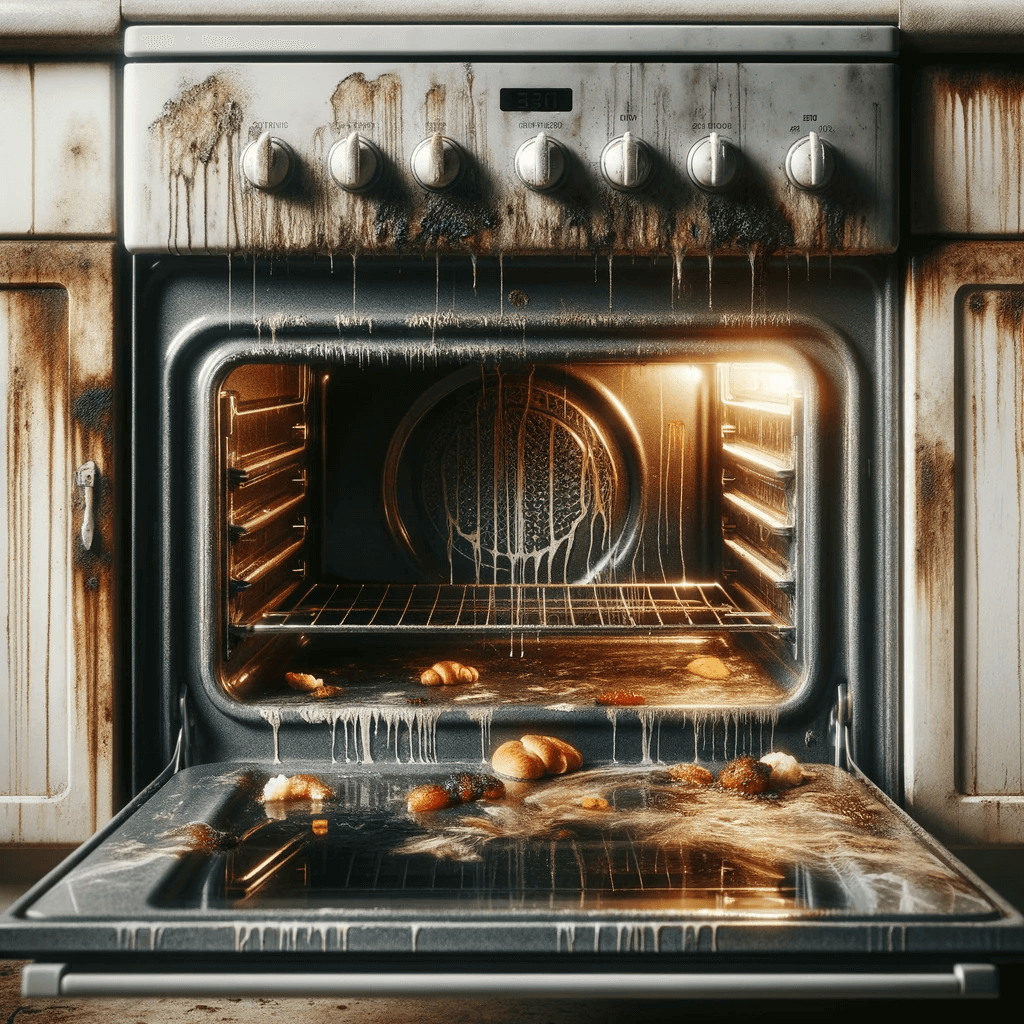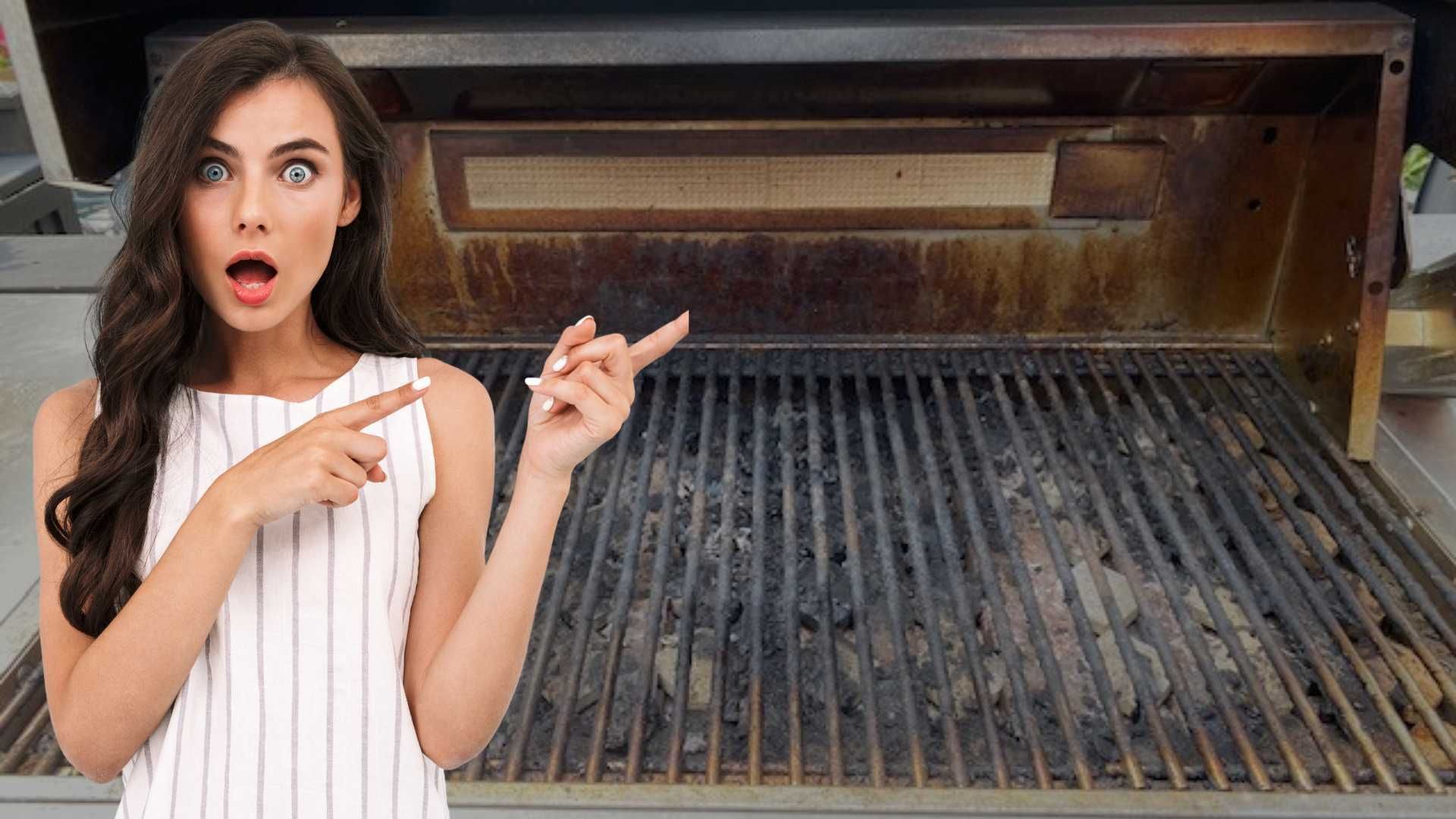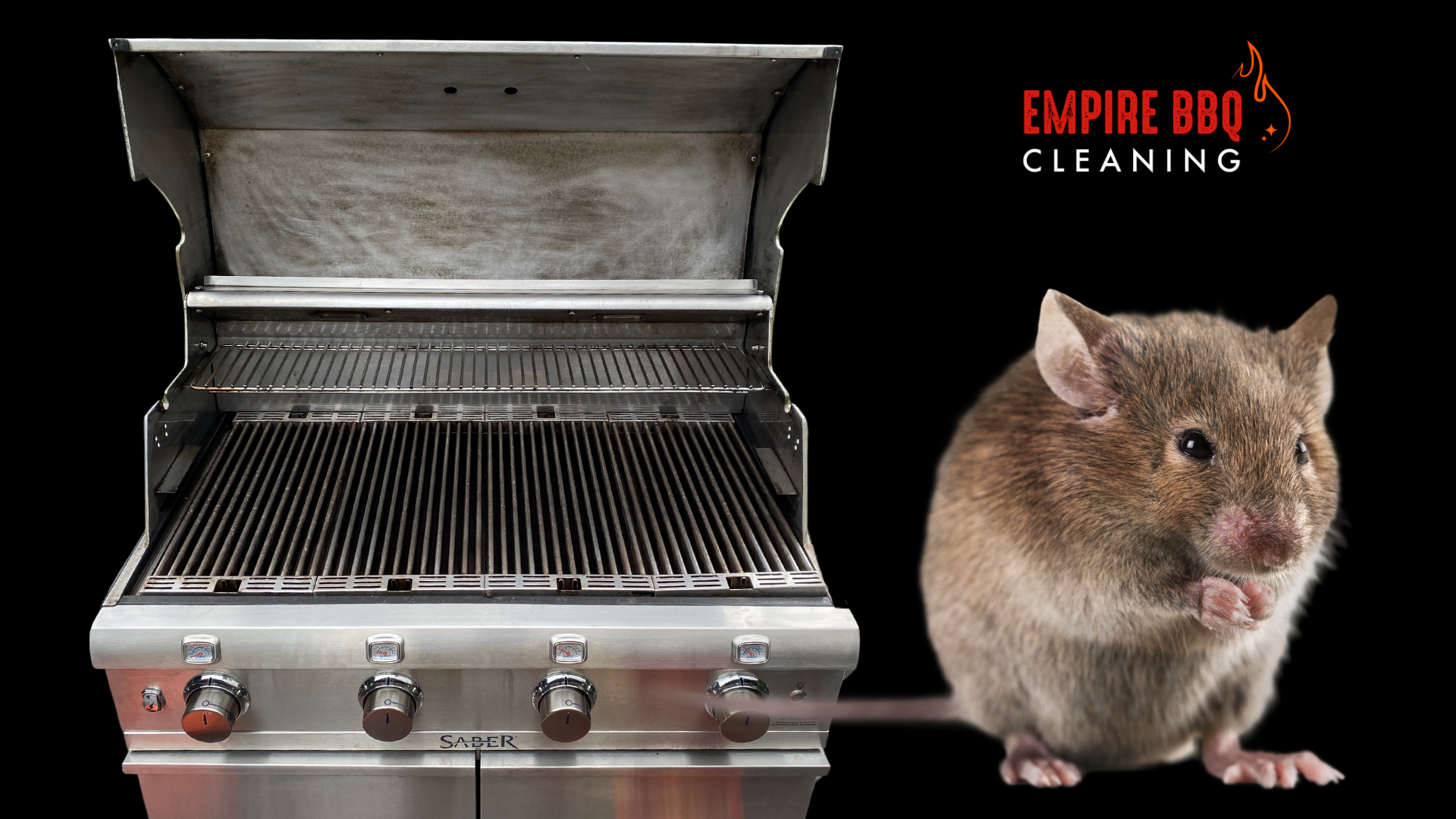👍🏼 Over 2,000 Satisfied Customers! 🔥
Think Twice Before Using Baking Soda in Your Oven: Shocking Hazards Exposed!
Be Aware Of The Potential Downsides Of Using Baking Soda In Your Oven
Hey there, fellow home enthusiasts! This article touches on a topic that might surprise you – the hidden risks of cleaning your oven with baking soda. Yes, that trusty kitchen staple might not be the cleaning hero we thought it was, at least not for every job.
Here’s 5 reasons to think twice before using baking soda in your oven.

1. Damage to Oven Components
Imagine slathering your oven with a homemade paste of baking soda, only to find it's snuck into places it shouldn't be. Baking soda residue can get trapped behind lights, fans, and between glass panels, potentially causing more harm than good. Plus, its abrasive nature might leave scratches on your oven's interior surfaces. Ouch!
2. Ineffectiveness Against Stubborn Grease
Baking soda has its moments in the spotlight for light cleaning, but when it comes to those tough, baked-on messes? Not so much. Its limited cleaning power can leave you scrubbing for hours, only to end up with mediocre results. That's a lot of elbow grease for little reward.
3. Warranty Concerns
Did you know that your DIY cleaning adventures might void your oven's warranty? Using baking soda in ways not recommended by the manufacturer can lead to a voided warranty. Always check the fine print before you start; it's better to be safe than sorry!
4. Health and Safety Risks
Cleaning can be a chore, but it shouldn't compromise your health. Inhaling baking soda dust can irritate your respiratory system, and mixing it with other household cleaners might accidentally create toxic fumes. Safety first, folks!
5. The Mess and Hassle
If you've ever tried to rinse away baking soda residue, you know it can be stubborn. It can leave a white film or streaks inside your oven, and the cleanup might feel like it's taking forever. Plus, there's the risk of clogging your drains with all that extra rinsing. Who needs that headache?

1. Damage to Oven Components
When embarking on a DIY cleaning mission with baking soda in hand, it's easy to picture a sparkling clean oven as the end result. However, this common kitchen ingredient can sometimes play the villain in your cleaning story, especially when it comes to the delicate components of your oven.
Let's break it down a bit. Your oven isn't just a box that heats up; it's a complex appliance with various sensitive parts. Light fixtures, for instance, are not designed to be bathed in cleaning solutions. Baking soda paste, with its grainy texture, can seep into these fixtures, potentially causing electrical issues or diminishing the light quality over time.
Similarly, modern ovens often come with cooling fans that help regulate the appliance's temperature. These fans have vents that can easily become clogged with baking soda paste, leading to overheating or even failure of the oven's cooling system. Imagine the frustration of a fan grinding to a halt because of a well-intentioned cleaning attempt.
The space between glass panels on oven doors is another trap for baking soda paste. Not only is this area difficult to reach and clean out once the paste has hardened, but the residue can also obscure your view into the oven, detracting from the appliance's aesthetic and functionality.
Moreover, the abrasive nature of baking soda poses a risk to the interior surfaces of your oven. While it might not seem like much, repeated use of baking soda as a scrub can leave fine scratches on glass and enamel finishes. Over time, these scratches can accumulate, dulling the finish and potentially making the surfaces more susceptible to rust and other damage.
In essence, while baking soda is celebrated for its natural cleaning properties, it's crucial to use it wisely and sparingly on appliances like your oven. The last thing anyone wants is a cleaning solution that creates more problems than it solves. It's all about finding the right tool for the job, and sometimes, that might not be the baking soda you thought was your kitchen's cleaning superhero.

2. Ineffectiveness Against Stubborn Grease
Baking soda is often hailed as a miracle worker for a variety of cleaning tasks, thanks to its gentle abrasive quality and deodorizing power. It's great for tackling surface stains and odors, making it a go-to for many homeowners looking to keep their spaces clean with natural products. However, when it comes to the battlefield of your oven's interior, where stubborn grease and baked-on food reside, baking soda's effectiveness starts to wane.
The problem with these tough messes is that they're not just sitting on the surface. They've been baked and rebaked onto the oven walls and floor, becoming a part of the oven's landscape through countless cooking cycles. This hardened, carbonized material is far more challenging to remove than the fresh spills baking soda can handle with ease.
When you apply a baking soda paste to these areas, it does start to work on the grime, but the process is slow and often ineffective against the deepest layers of grease. You might find yourself dedicating an entire afternoon to scrubbing, only to be met with areas that barely look touched. The paste can loosen some of the grime, but without the chemical capability to dissolve these tough grease spots, you're essentially just skimming the surface.
This is where the real frustration can set in. After all that scrubbing, which can feel like a workout in itself, you're left with results that are far from satisfying. It's a lot of physical effort for a payoff that doesn't match up. This can be especially disheartening if you were hoping to avoid harsh chemicals and stick to a more natural cleaning routine.
Moreover, in the process of trying to tackle these stubborn areas with baking soda, there's a risk of over-scrubbing. In an attempt to get deeper into the baked-on mess, you might apply more pressure, which can lead to damage on sensitive surfaces inside your oven, such as scratching or etching, further compounding your cleaning woes.
While baking soda has its place in the cleaning arsenal for light messes and maintenance, it falls short when confronted with the challenge of stubborn, baked-on oven grease. This limitation not only makes it an inefficient choice for thorough oven cleaning but also highlights the importance of using the right tools and cleaners for the job at hand.
Sometimes, those tougher jobs require solutions specifically designed to cut through the grime, saving you time and sparing you unnecessary frustration.

3. Warranty Concerns
Did you know that your DIY cleaning adventures might void your oven's warranty? It's a concern that many of us overlook in our zeal to keep our kitchens spotless and our appliances in top shape.
Using cleaning methods or materials not recommended by the manufacturer, such as baking soda in ways that go against the guidelines, can lead to a voided warranty. This revelation begs for a closer examination, especially when homemade cleaning solutions are gaining popularity for their effectiveness and eco-friendliness.
The Appeal of Baking Soda Cleaning
Baking soda, a staple in many households, is celebrated for its versatility, extending beyond baking into the realm of effective cleaning solutions. It's a natural, non-toxic substance that, when mixed with water, can tackle grease and grime without the harsh chemicals found in commercial cleaners.
The process involves creating a paste of baking soda and water, spreading it inside the oven, and allowing it to sit overnight to break down stubborn stains. This method is not only simple but also environmentally friendly, offering a way to clean without contributing to indoor air pollution or leaving harmful residues.
The Warranty Dilemma
However, the shift towards DIY cleaning solutions comes with a caveat—potential warranty issues. Oven manufacturers often specify the types of cleaners that are safe to use on their appliances, and deviating from these recommendations can risk voiding the warranty.
This is because some DIY methods, including the use of baking soda, might cause unforeseen damage, such as scratching glass doors or corroding metal components, if not used carefully.
Balancing Risks and Rewards
The key to navigating this dilemma is informed decision-making. Before embarking on a DIY cleaning spree, it's essential to consult your oven's manual. Look for any warnings or recommendations regarding cleaning methods and materials. If the manual advises against using baking soda or any other DIY solution, heed this advice to preserve your warranty.
For those whose ovens do not have specific prohibitions against baking soda, or for out-of-warranty appliances, using baking soda can be a rewarding method. It offers a safe, effective, and eco-friendly way to keep your oven looking and functioning at its best. However, precautions should be taken to avoid damaging sensitive components such as heating elements or the oven door gasket.
The journey towards maintaining a clean and functional oven without jeopardizing the warranty requires a balance of enthusiasm for DIY solutions and adherence to manufacturer guidelines. While baking soda presents a compelling, natural cleaning option, it's crucial to consult your oven's manual first.
This ensures that your efforts to maintain a clean kitchen also keep you within the bounds of your warranty, protecting both your oven and your peace of mind. It's a reminder that sometimes, being "safe rather than sorry" involves reading the fine print and making informed choices about how we care for our appliances.

4. Health and Safety Risks
Cleaning your oven with some baking soda might seem like a harmless, eco-friendly choice. However, even the most well-intentioned DIY solutions can come with their own set of health and safety risks that are often overlooked.
Understanding these risks is crucial to ensuring that your quest for cleanliness doesn’t inadvertently compromise your well-being or that of your family.
Respiratory Irritation from Baking Soda Dust
Baking soda, for all its virtues, is a fine powder that can easily become airborne during the cleaning process. When inhaled, this dust can irritate the respiratory tract, leading to discomfort such as coughing or sneezing, and in more sensitive individuals, it may even trigger asthma symptoms or other respiratory issues.
It's a subtle reminder that even natural products can pose risks under certain conditions. To mitigate this, always use baking soda in well-ventilated areas and consider wearing a mask to prevent inhalation of the fine particles. This simple precaution can make a significant difference in maintaining your respiratory health while cleaning.
The Hidden Dangers of Chemical Mixtures
In the pursuit of a spotless oven, you might be tempted to mix baking soda with other household cleaning agents to boost its grease-cutting power. However, this well-meaning experiment can inadvertently lead to the creation of toxic fumes.
For example, mixing baking soda with vinegar, while a popular cleaning hack, releases carbon dioxide and can create an intense reaction that, while not toxic, requires adequate ventilation to avoid respiratory discomfort. More concerning is the potential mixing of baking soda with bleach-based cleaners; this combination can produce chloramine, a gas that can cause respiratory distress and other health issues if inhaled in enclosed spaces.
Emphasizing Safety in Your Cleaning Routine
The key to safely using baking soda and other DIY cleaning solutions lies in understanding their properties and how they interact with other substances. Always research and double-check before combining different cleaners, and never assume that natural means risk-free.
Additionally, wearing gloves and eye protection during your cleaning endeavors can prevent skin irritation and protect against accidental splashes.
When in doubt, consult the labels on household cleaning products for warnings about potential chemical reactions, and consider reaching out to the manufacturer if you’re unsure about the safety of using certain products together. Above all, prioritize your health and safety by taking preventive measures to protect yourself during your cleaning routine.
Remember, a clean oven should never come at the cost of your health. Safety first, folks, ensures that your home remains a sanctuary, not just from dirt and grime, but from unnecessary health risks as well.

5. The Mess and Hassle
Diving into a DIY oven cleaning project with baking soda seems like a straightforward and eco-friendly solution at first glance. Yet, anyone who has embarked on this task knows that the aftermath can often be less than simple.
The gritty reality of cleaning up after using baking soda is a tale of stubborn residues, streaky interiors, and potentially clogged drains. It's a scenario that might leave you questioning whether the initial effort was worth the hassle.
The Stubborn Streaks and Films
Baking soda, for all its cleaning prowess, has a notorious tendency to leave behind a white film or streaks after rinsing. This residue clings to the oven's interior surfaces, including the hard-to-reach corners and crevices. The challenge here isn't just about the effort of applying the baking soda paste but the arduous task of removing it completely.
Achieving a spotless finish often requires multiple rounds of rinsing and wiping, a process that can be both time-consuming and physically exhausting. Instead of marveling at a sparkling clean oven, you may find yourself squinting at the light reflecting off streaks and patches that just won't budge.
The Drainage Dilemma
Compounding the frustration of the cleaning process is the potential risk of clogging your kitchen drains. The excess baking soda and water mixture that's rinsed away from the oven can accumulate in the plumbing, especially if not flushed through properly. Baking soda, while soluble in water, can settle and harden in the pipes, especially when it reacts with other substances lurking in your drainage system.
This can lead to blockages that are not only a nuisance but can also require professional intervention to resolve. Suddenly, the cost and effort of a seemingly simple DIY cleaning solution balloon into a more significant issue that could have been avoided.
Weighing the Effort Against the Outcome
The allure of using baking soda for oven cleaning lies in its accessibility, affordability, and non-toxic nature. However, understanding the potential mess and hassle involved in the cleanup process is crucial.
While there are certainly success stories, it's important to weigh the effort against the outcome. Is the potential for stubborn residues, streaky finishes, and clogged drains worth the initial appeal of a DIY solution?
Navigating the Cleanup with Eyes Wide Open
For those undeterred by the potential challenges, going into the cleaning process with eyes wide open and prepared for the aftermath is key. Taking preventive measures, such as placing a basin or towel under the oven door to catch drips during rinsing, can mitigate some of the mess.
Additionally, gradually introducing baking soda to your cleaning routine allows you to gauge its effectiveness and manageability in your specific oven and plumbing setup.
Remember, achieving a clean oven is a worthy goal, but not at the expense of creating more work for yourself. Sometimes, the best solution is finding a balance between DIY efforts and knowing when to seek alternative methods or professional oven cleaning help to avoid unnecessary headaches.
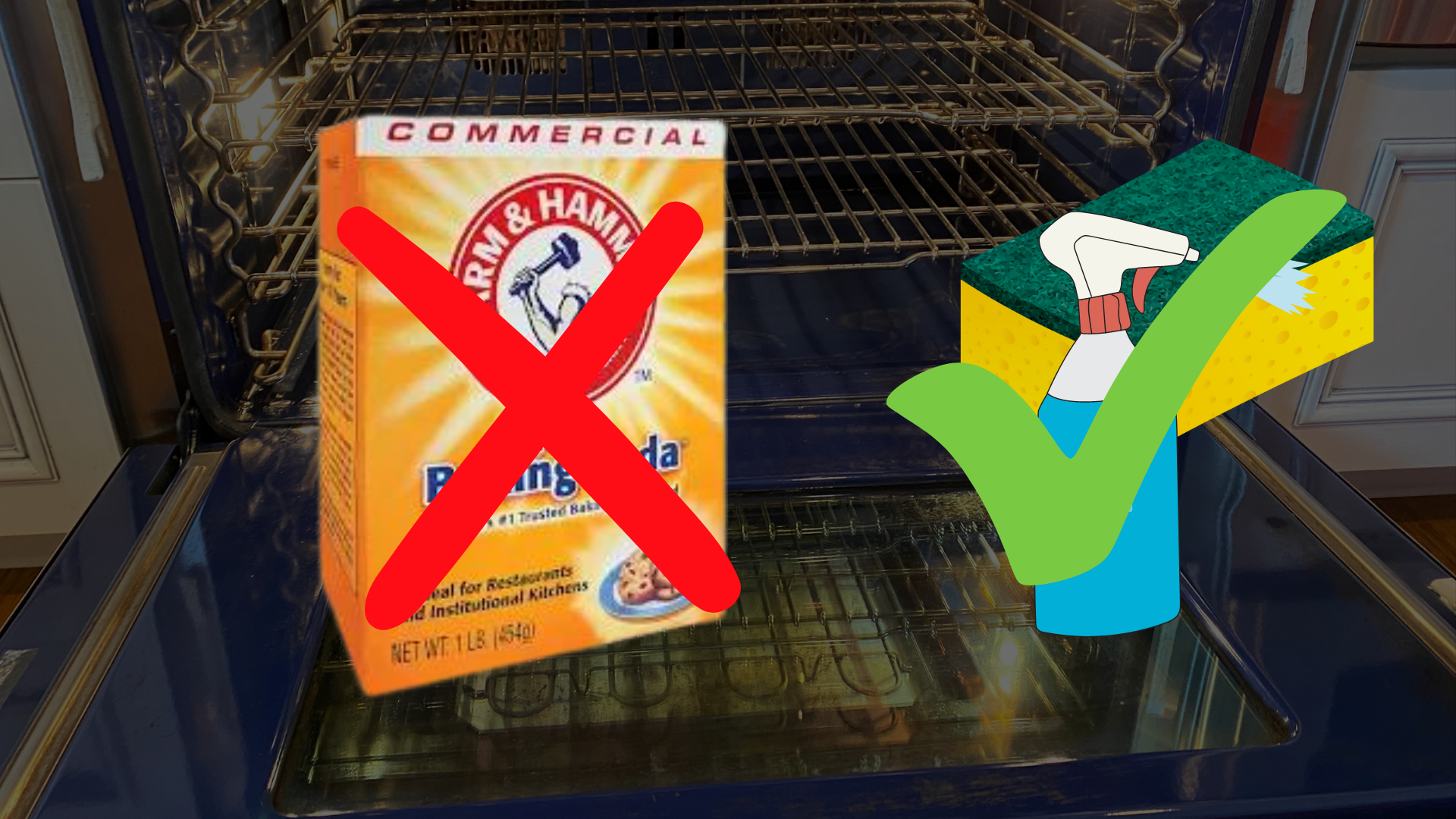
In conclusion, while the allure of a natural, DIY oven cleaning method like baking soda is undeniable, it's crucial for homeowners to be fully aware of the potential downsides.
The quest for a clean oven can quickly become a labor-intensive and risky endeavor that may not always deliver the desired outcomes. This exploration serves as a reminder to weigh the benefits and drawbacks carefully, consider the specific needs of your appliance and health, and possibly look towards professional cleaning services or manufacturer-recommended products for a safer, more effective, and hassle-free oven cleaning experience.
In the realm of oven maintenance, sometimes the traditional paths, guided by expert advice and proven products, are the ones that lead to the most satisfying and disaster-free conclusions.
Alternatives to Baking Soda
So, what can you do instead? For starters, professional oven cleaning services have the tools and know-how to tackle oven messes safely and effectively.
Or, you could use manufacturer-recommended cleaners that won't risk damage or warranty issues.
